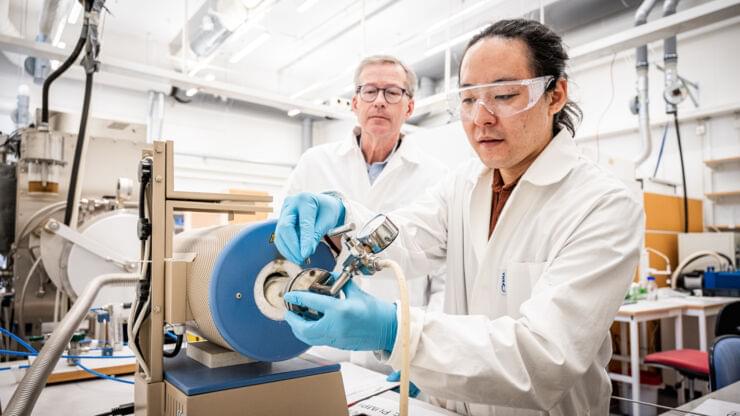For the first time, scientists have managed to create sheets of gold only a single atom layer thick. The material has been termed goldene. According to researchers from Linköping University, Sweden, this has given the gold new properties that can make it suitable for use in applications such as carbon dioxide conversion, hydrogen production, and production of value-added chemicals. Their findings are published in the journal Nature Synthesis.
Scientists have long tried to make single-atom-thick sheets of gold but failed because the metal’s tendency to lump together. But researchers from Linköping University have now succeeded thanks to a hundred-year-old method used by Japanese smiths.
“If you make a material extremely thin, something extraordinary happens — as with graphene. The same thing happens with gold. As you know, gold is usually a metal, but if single-atom-layer thick, the gold can become a semiconductor instead,” says Shun Kashiwaya, researcher at the Materials Design Division at Linköping University.
